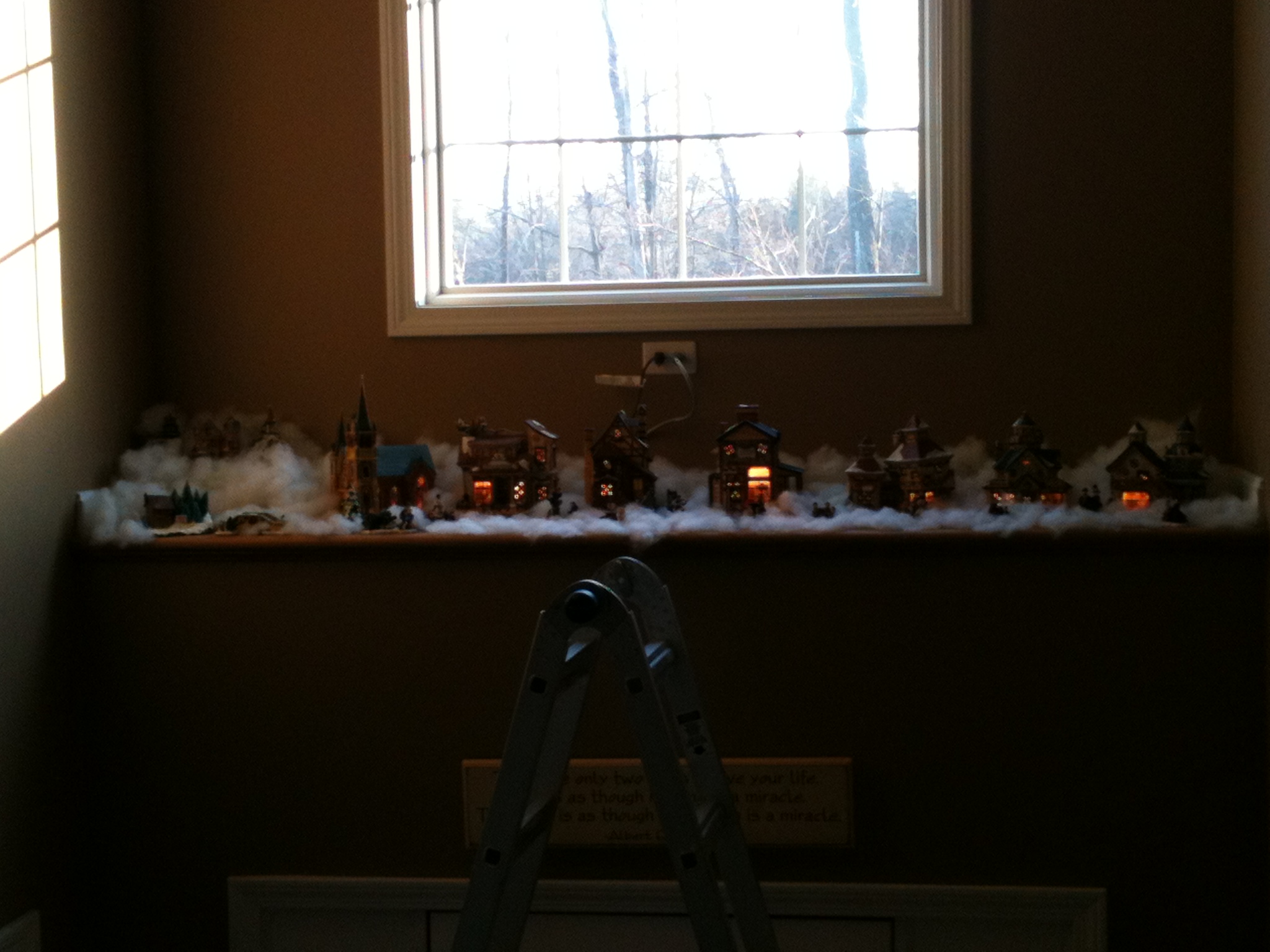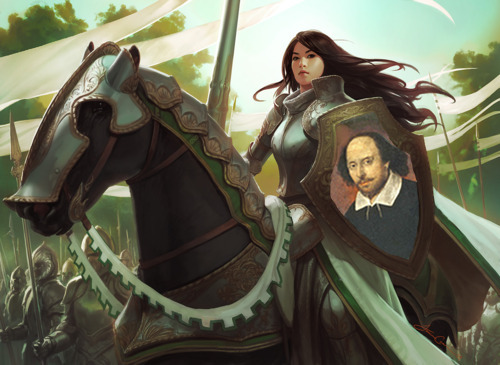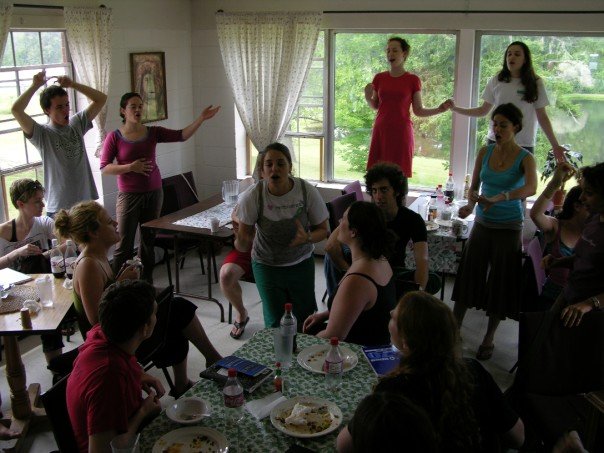At the moment, my life is pretty much the picture of what I would generally describe as being “my ideal life”.
I’m involved in two productions: Twelfth Night (my group’s pilot experiment in communal theatre) is in rehearsal and I’m getting to do some awesome, wacky, fun things with some really neat, smart, talented individuals while simultaneously dreaming about a bright future on the Boston theatre scene; and Measure for Measure (my debut as a dramaturge which, for those who are keeping track, I’ve been working on actively since last June) is in its last week of rehearsal before it opens next Thursday. I’m TAing one class

Rehearsal the other day; we have a show! From a script that I made! From Shakespeare!
(Modern and Postmodern theatre) with a professor from whom I’m endlessly learning things and with whom it’s a pleasure to work. I’m in a class that’s got me constantly thinking, constantly on my toes, and constantly studying for comps. I’m keeping up on my awesome side-projects (Offensive Shadows has just started recording our episodes on Love’s Labour’s Lost which is a joy to discuss as it’s one of my favorite plays). I’m living, eating, breathing, bleeding, and sweating theatre.
I guess call me a classic case of “grass is always greener” syndrome, but I’m so tired right now that I’m having trouble enjoying any of it. I haven’t had a decent break in who knows how long and every time I do manage to eke out a few hours away from my desk that time seems to fill with unexpected trips to the theatre (which, don’t get me wrong, I love but aren’t much of a break for me). What’s really got me shaken is the fact that’s is very early in the semester to be feeling this way; all of my big projects are on the distant horizon (with the exception of one lecture that I’m working on prepping; the first of two for my TAship this semester). If I’m working like this before my projects hit the hot zone, where am I going to find time for my projects when I actually need to work on them?
I’m not the only one feeling like this either. From speaking with some of my cohort, it seems that a general malaise has overcome Dance and Drama at Tufts. I guess I could blame it on February; the long (but surprisingly so-far easy) Boston winter; or maybe the Genocide course that most of my colleagues are taking (nothing will make you feel awful about life quite like being bombarded with consistent reading about genocide).
To hammer home the point that all I do is work and there is life outside my apartment, I am currently hunkered down in my office while outside begins the great blizzard Nemo which some stations are predicting will be one of the worst in Boston’s history. Most normal people I know have been given today off or have a half-day and this extends into tomorrow thus effectively creating a three-day-weekend for the gainfully employed. I, however, took this opportunity to stock up on library books and non-technology research (in case we lose power) and plan to spend the next few days holed up on my sofa working. With any luck, I may be able to plow through a bunch of my to-dos while the rest of the Northeast goes sledding.
…The one concession I will make to snow is the potential creation of a snow-tomaton in my near future. Because making a snowman out of the accumulation from my driveway is way easier and more enjoyable than shoveling it out.
Here’s hoping accomplishment can bust through my malaise. If not, I at least hope you have a good weekend. Stay warm and dry!















